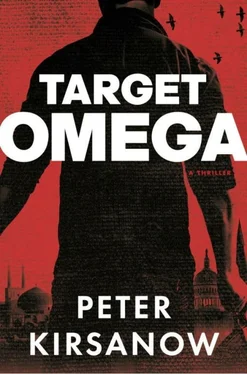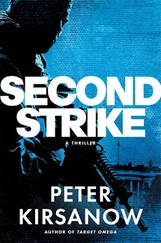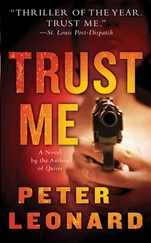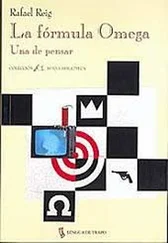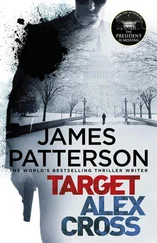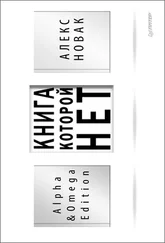“Thank you, we will look into it. But I can assure you, the number of vessels involved indicated that this was not an ordinary exercise.”
“Even if true, that would not have prompted you to call me at this hour.”
“Perhaps not,” Marshall acknowledged. “But that, coupled with another piece of troubling information, has caused some alarm.”
“And what is this other piece of information?”
Marshall hesitated, glancing at Brandt. The two had agreed that Marshall would not reveal the source of the EMP intel, just the claim that the United States would be hit.
Marshall replied, “That the United States is going to be subject to an electromagnetic pulse attack.”
More unintelligible conversation, then a calm “And when is this attack to occur?”
“We assume imminently.”
“And, Mr. President, you believe my country is somehow involved.”
The subtle shift to formal salutation was not lost on anyone in the Situation Room.
“The presence of a large number of your subs at the same time we received intel related to the EMP attack, as well as other incidents, prompted us to reach out to you.”
“And, if I may ask, who or what is the source of this intel?”
Brandt shook his head. Marshall paused. Before he could reply, Mikhailov continued. “Could it be a Mr. Garin?”
The Russian president’s question took everyone in the Situation Room by surprise except Plotkin, who had no idea who Garin was. Brandt shook his head vigorously, signaling Marshall to neither confirm nor deny, but the president decided not to be coy.
“What do you know of Mr. Garin?”
“You do not seriously think, Mr. President, that we would not know that your FBI has been engaged in a widespread manhunt for one of your most elite clandestine soldiers? You may no longer consider us a superpower, but I would wager that our human intelligence capabilities remain vastly superior to yours. No disrespect, of course.” There was a slight pause. “Did you know that he is Russian?”
“He is an American,” Marshall stated firmly.
“Yes. So he is. America. The great melting pot. I am certain he eats hot dogs and enjoys baseball. But you must admit, his behavior is very… Russian. Quite tenacious, I’m told. An exquisite killer. Implacable. Reminds me of the kind of individual who would have survived Leningrad.” Another insouciant pause. “I understand he still has relatives here.”
Marshall bristled. “What are you suggesting, Mr. President?” Marshall’s shift to a formal salutation prompted Brandt to again make downward motions with his hand, signaling a need to temper the conversation.
“Nothing at all, Mr. President. It is not the Cold War any longer. The New York Times says we are friends.”
“I don’t read The New York Times . And either way, friends don’t mass nuclear subs off one another’s coastlines.”
Mikhailov’s tone softened. “John Allen, Russia is not suicidal. If you had any doubts about this, I am sure Mr. Brandt has dispelled them for you. This electromagnetic pulse, I understand its effect. You would be forced to retaliate with atomic weapons against any nation that launched such a horrible attack. Millions would die. We know this…”
There was more garbled chatter at the other end before Mikhailov resumed speaking.
“But if you do not believe me or your national security advisor, perhaps you will believe your spy satellites and your electronic intercepts. Check the satellites tasked over our rocket-launch facilities, or as you call them, ballistic missile sites. You will detect absolutely no preparations for a rocket launch. Our silos are cold. And your National Security Agency will have detected absolutely no communications regarding a rocket launch.”
“What about the nukes on your subs?” Marshall asked. “They could reach us in minutes.”
“As I have stated, we are not suicidal. The vessels have set a course to return to Yagal’naya. You have my word that we will take no aggressive action toward the United States and we have no intention of taking such action. How many hundreds of nuclear missiles do you have aimed at Moscow at this moment? How many nuclear submarines do you have that could vaporize Saint Petersburg twenty minutes from now? That is your best proof that no EMP will come from Russia.”
“Just to be clear, Yuri, this administration’s unequivocal response doctrine is massive nuclear retaliation toward any nation that strikes the US with an EMP.”
“That has always been our understanding, John Allen.”
There was silence for several seconds. Brandt made a slicing motion across his throat, suggesting the call be terminated.
“Apologies for having disturbed you, Yuri, as well as Mr. Vasiliev and your translator. I am sure you understand my concerns. Those concerns, thankfully, have been allayed. We will talk again soon.”
“Yes. We will talk soon.”
—
Alexei Vasiliev regarded his boss as he sat in a high-backed chair next to the speakerphone. Yuri Mikhailov was a big man — six foot six and nearly three hundred pounds, a former discus thrower on the 1984 Soviet Olympic team. He had a broad, peasant’s face and tended to sway from side to side as he walked, suggesting mild inebriation. After a brief time with the KGB before the collapse of the Soviet Empire, he had leveraged his contacts and position to amass a modest fortune in oil and gas leases. He appeared to those who didn’t know him well to be perpetually half asleep, but his mind was fast, exacting, and shrewd.
Vasiliev knew his boss well, admired him. But on occasion, Mikhailov could be inscrutable. This was one such occasion.
“What do you make of Marshall?” Vasiliev asked in Russian.
“He is smarter than his predecessor. Tougher. Clarke believed everything his professors taught him in university. And the lessons he learned there remain impervious to reality. Marshall, however, is guided by his experience in the real world.”
“Then that is not good for Russian interests,” Vasiliev observed.
“He is tougher than Clarke, but he is still the American president. He leads a fractious people, many of whom expect and demand comfort. His charge is to provide it to them. Inconveniences are not lightly tolerated.”
“Therefore, they — and he — can be manipulated,” Vasiliev noted.
“To a point. We must not underestimate them. Many Americans, it seems more of them every day, expect comfort as an inalienable right. They think their government can and should provide a subsistence. These Americans are not our concern. It is the segment of America that expects nothing more than freedom that is our concern. The cowboys. The United States may have its problems, but it still exists. The Soviet Union does not.”
“For now,” Vasiliev reminded him. “Should we urge some of our friends in the Western media to put pressure on Marshall, criticize his unnecessarily provocative Middle East policies, his confrontational posture toward us?”
Mikhailov picked up a glass from the highly polished mahogany table next to him and sipped the clear liquid slowly. It was not vodka, but water. Contrary to his CIA profile, Mikhailov almost never drank alcohol.
“It is not the American president who is on my mind right now,” Mikhailov said. “It is our friend from the American Senate. He has not been as useful as we had hoped, despite being compensated quite handsomely. More importantly, it appears he may now be a liability.”
Mikhailov placed the glass on the table and rose from the chair. Stifling a yawn, he turned toward Vasiliev. “Garin should not know about an EMP. That is unacceptable. It is too close. Only hours now. Much too close.”
Читать дальше
